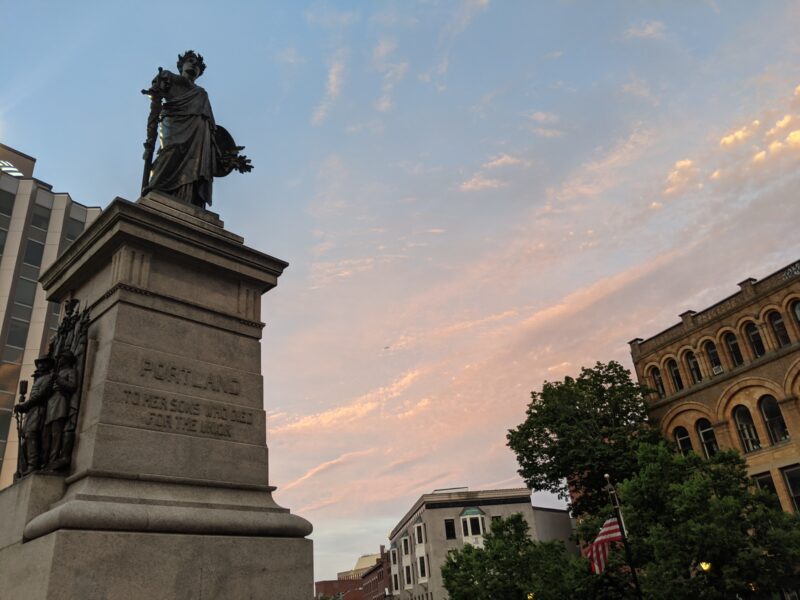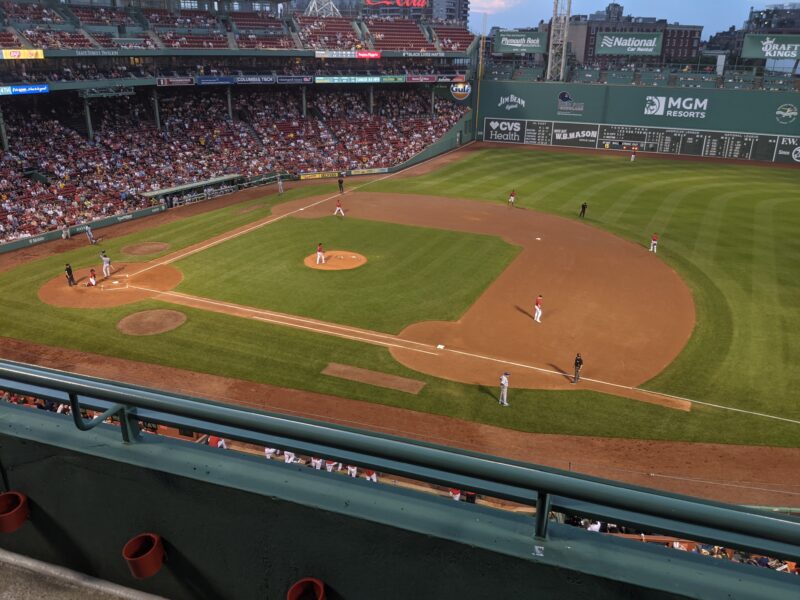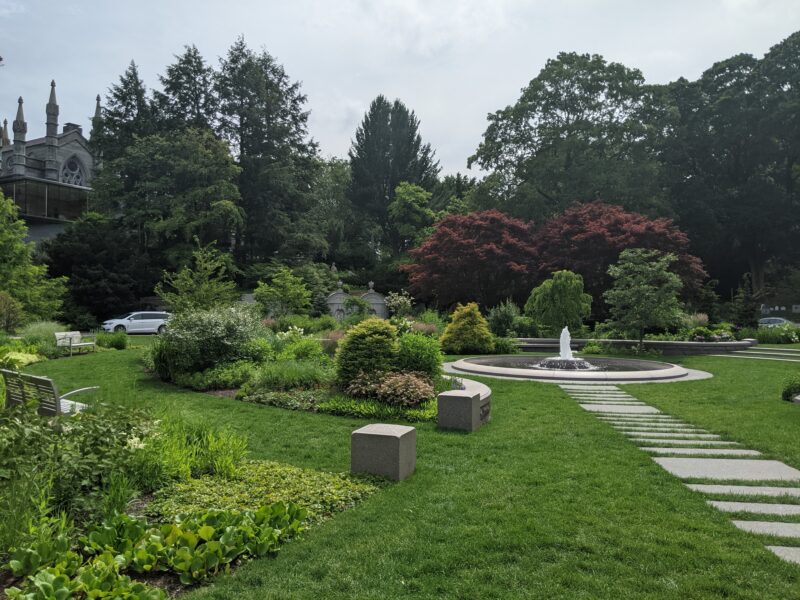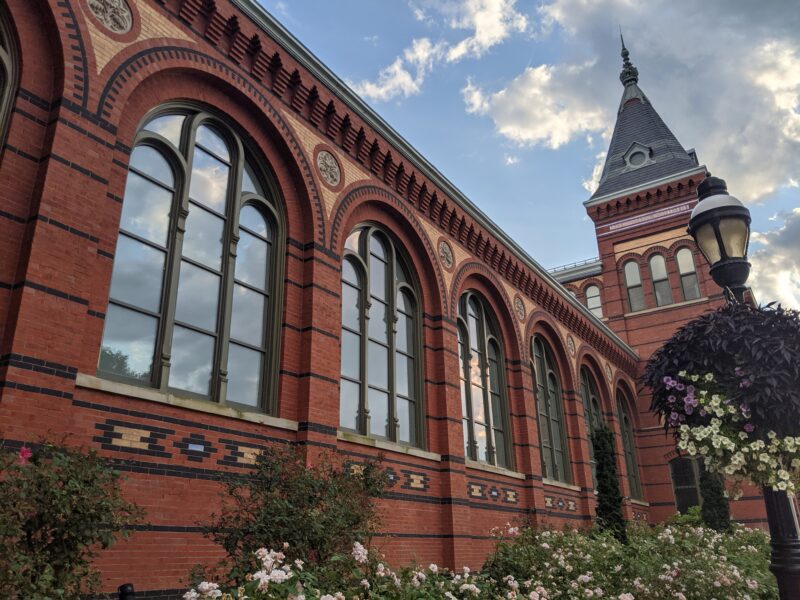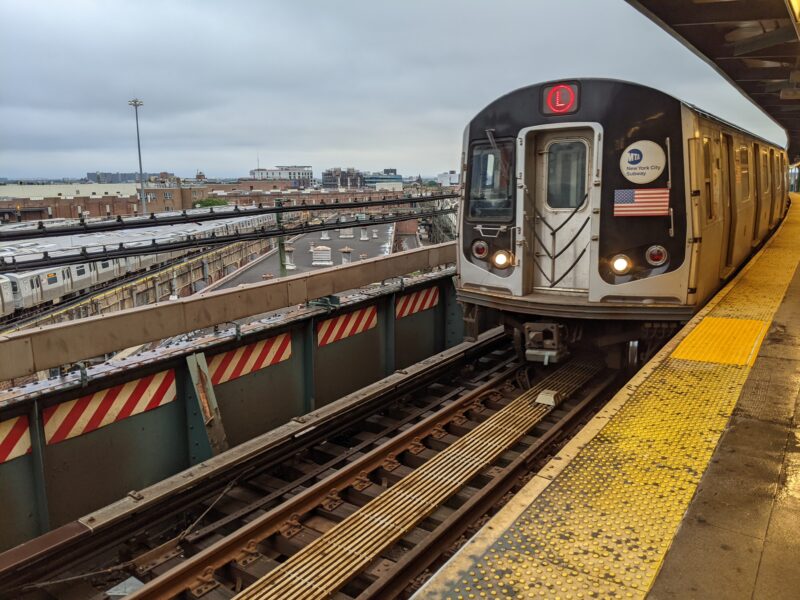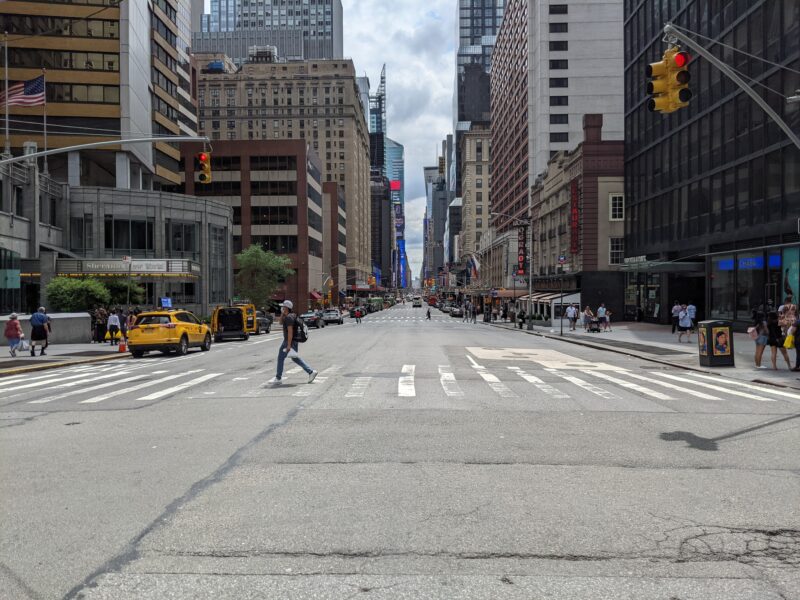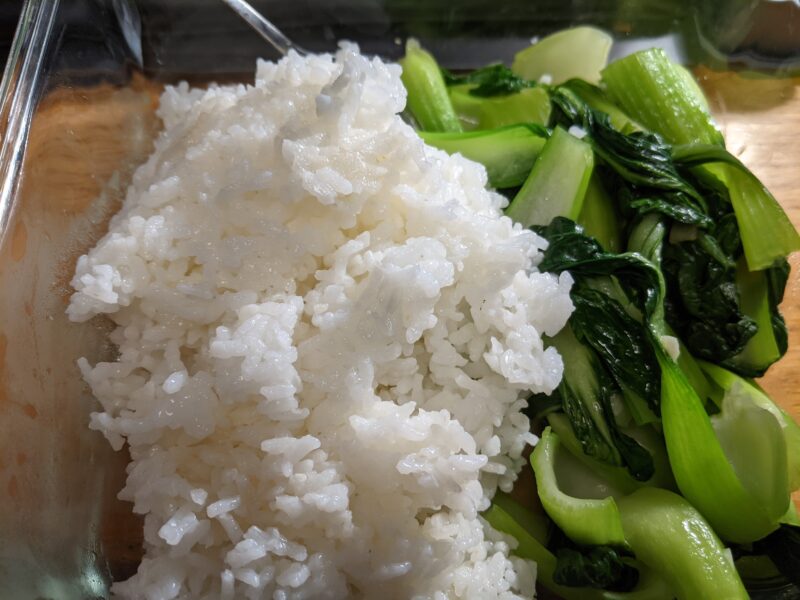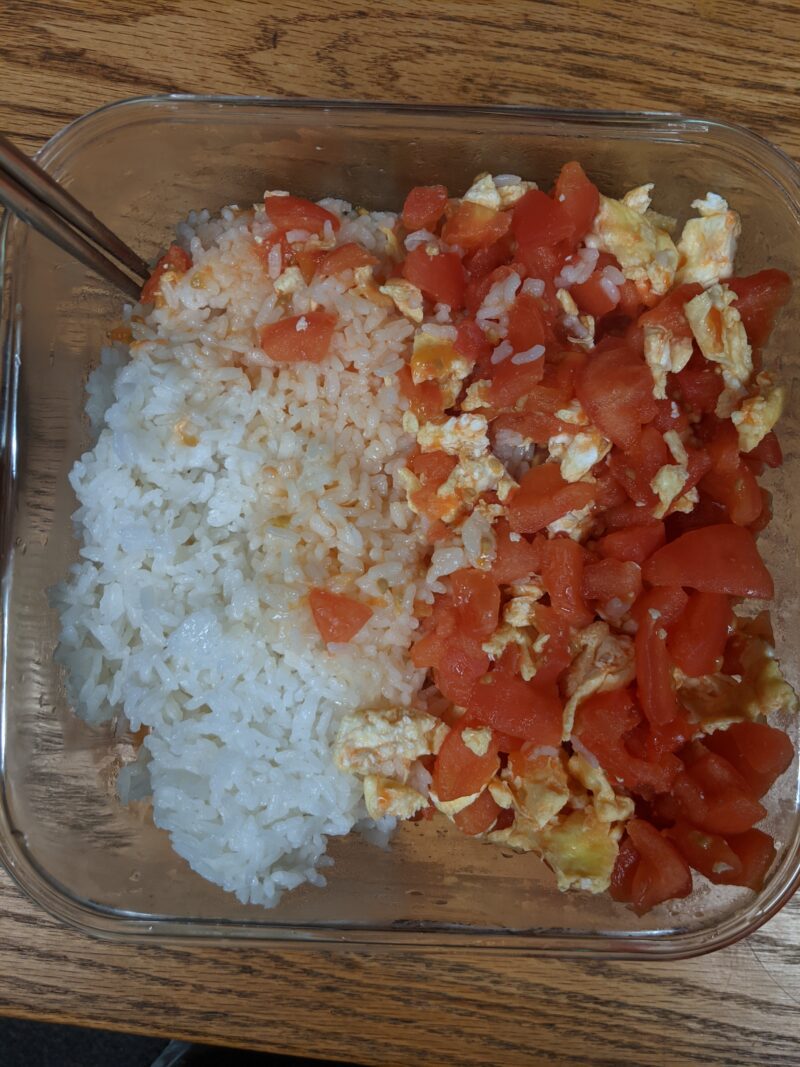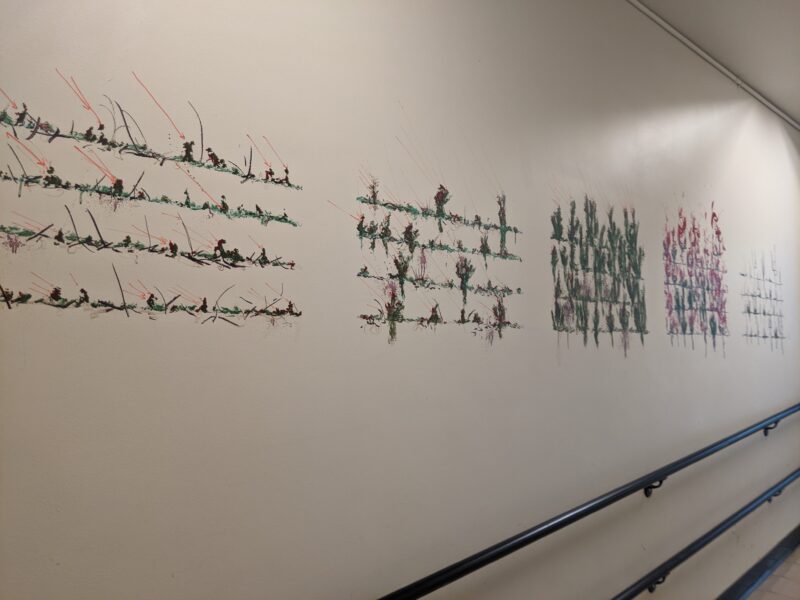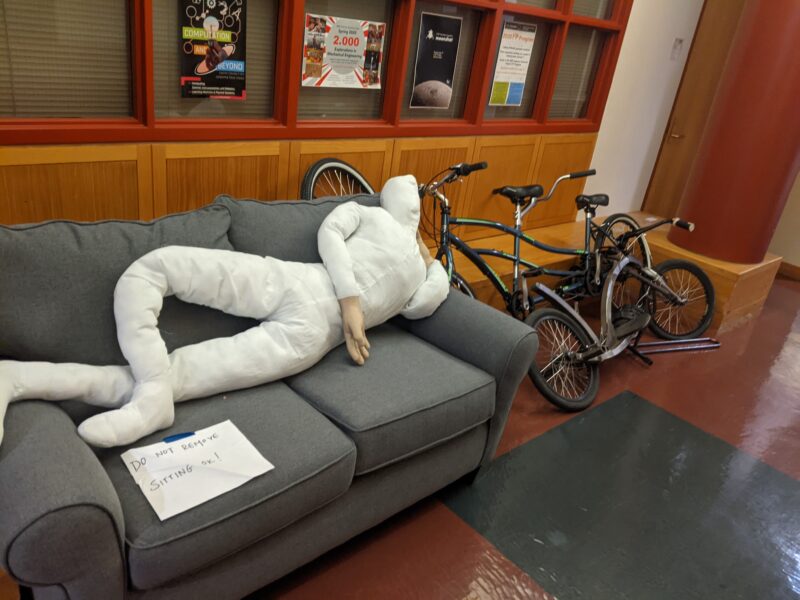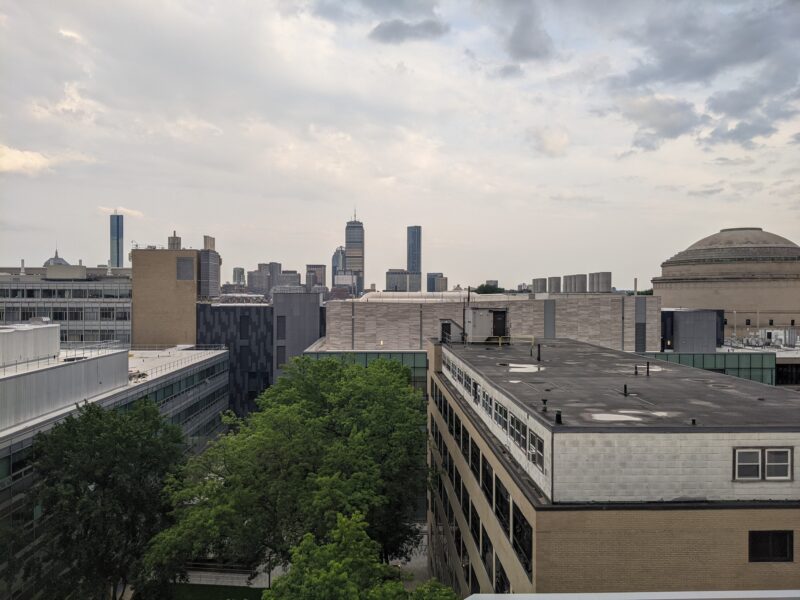
how can i keep from singing? by Alan Z. '23, MEng '24
a midpoint check-in
one.
For the past two weeks, I’ve been spending my evenings singing in a choir. The Boston Conservatory is running a program for high-school students interested in pursuing singing in the future, and the choir director, who also happens to be MIT’s choir director, invites Concert Choir members in the area to fill in for vocal parts that are underrepresented. Tenors are always in short supply, so I sign up. It’s a pretty good gig; I get to show up, sing with a lot of extremely talented people, learn some music and some vocal technique, and then go home, with no real additional obligations.
Rehearsals are every day, Monday to Friday, from 6:30 to 8:30 PM, with a short break in the middle. It’s the first time since March 2020 that I’ve been able to sing with a large ensemble in person, and it is exhilarating. We run each piece over and over, first learning the rhythms and pitches, and then honing the actual musical expression: where to breathe, where to sing loudly and where to sing softly, how to form each individual vowel and consonant so that the text is both understandable and natural. It is a tedious process, but I cling to every instruction we get, penciling in notes between the lines, and the two hours of rehearsal fly by each day.
two.
I’ve been happy this summer—I’ve been somewhat successful with challenging myself to cook and run, even though these tasks are time-consuming and difficult. Mask mandates have been lifted in residential buildings for vaccinated students, and there’s a date on the horizon01 to be specific, this date is <a href="https://orgchart.mit.edu/node/15/letters_to_community/update-mit-vaccination-levels-and-covid-policies">July 30th</a>, the date by which all MIT students and all individuals accessing campus are required to be vaccinated. for the same measure taking place in the academic buildings. Life is looking up.
The best part about summer is, of course, that it is almost impossible for work to be as difficult as MIT. During the school year, I spend a lot of time completing assignments in the evenings and on the weekends, but in the summer, I work a job with defined, weekday hours, and so I fill my newfound spare time with other things. In the past six weeks, I watched all of Avatar: The Last Airbender for the first time, with Oris S. ‘23. I’ve had lots of fun visiting Portland, Maine; Washington, D.C.; and New York City. I’ve taken hundreds of photos and walked hundreds of thousands of steps and had dozens and dozens of enjoyable experiences with friends.
One of the activities I have most enjoyed this summer is cooking for myself. It feels extremely satisfying to be able to make something with one’s own hands, and to be able to enjoy the fruit of one’s labors almost immediately. The dishes I make are all meals that I’ve enjoyed at home, at some point, made from memory or from Chinese recipes that my mother sends me when I ask her for help. When I finish making my dinner, and I finally get to take the first bite of food from the Tupperware I’ve been using as a bowl, I feel an immense sense of satisfaction. I did this on my own. I can feed myself.
It is, in many ways, the independence that has been the most satisfying part of this summer. Every decision I make is, in some way, about proving, just as much to myself as to others, that I am capable of being a real adult, making real meals, doing a real job, whatever that happens to mean. There are many stories I could tell you about why I care so much about this sense of independence, but suffice it to say that finally experiencing it is extremely satisfying.
I am alive, I am self-sufficient, I am free, I am happy.
three.
To get to the Conservatory from MacGregor House, I cross Memorial Drive and walk east along the river. I cross the Harvard Bridge, getting a good view of the Boston skyline. I think about how, growing up in South Dakota, I always wanted to get away from home and move to the “big city.” I still smile when I see the buildings, towering above the cars whizzing by on Storrow Drive, set against the clouds, reflected in the glassy surface of the Charles River. Yet I wonder if the mystique is gone, as I get used to living here. I cross Beacon Street, Commonwealth Avenue, Newbury Street, and turn right onto Boylston. I drown out the sounds of the city with my headphones, and I eye anyone who might be a tourist suspiciously.
I enter the Conservatory building on Hemenway Street. I walk up four flights of stairs, and turn right into the rehearsal space. We sing for two hours. I head back down the stairs, and out towards Cambridge.
On the way back from rehearsal, though, the sunsets still catch me in my step.


All the kids in the Conservatory program refer to our choir director as “Dr. Cutter.” Everybody in the Concert Choir at MIT calls him “Bill.”
four.
I’ve been sad this summer—there have been moments where I have felt like I am falling apart, and nothing is going right. There was a week where I ate only one meal a day, caught in the vicious feedback loop of not having enough emotional energy to make my own dinner, which spawned additional guilt about having to buy food to get by, which fed into the ongoing emotional turmoil, which was exacerbated by a consistent, light hunger.
The concrete anxieties and sadnesses are not the worst. It’s usually possible to resolve the problem which is the source of the pain, and then move on with life. The worst feelings have been the ones where there is no source, there is no reason, there is simply something floating in my chest that makes me feel horrible. It’s the feeling of falling, of thoughts spiraling inwards, of fears escalating out of control even though I know they aren’t real.
It is in these moments that I most realize this desire for independence is also a curse. In these moments, I need someone to catch me as I fall, to remind me that everything will be okay, but I have always hated asking people for help, hated depending on others, hated letting go of the perceived sense of self-control I have. This feeling is visceral and all-encompassing—it is the same reason that, out of the past two academic years, I have only been to office hours once. This is not to say that I have not gotten more than my fair share of support from the people around me—my communities at MIT have truly made me feel at home, and I always call my parents more often when times are tough. But it has also certainly not been easy, living apart from these people for extended periods of time. I still think my decision to live on campus this school year and this summer was the correct one—but this only means that it would’ve been even harder to survive in other environments.
five.
At the last rehearsal of the program, Bill talks about the importance of music, about how we cling to it in our moments of greatest need, about how it is not a luxury, but rather essential to the human spirit. He tells us about his experience on 9/11, about leaving the sanctuary of MIT’s Chamber Chorus to discover TVs in the hallways. He tells us about one of his musician friends living in New York at the time, about their initial feeling of uselessness, and the collective solace they found with other New Yorkers in singing tunes like “America the Beautiful” and “The Star-Spangled Banner.” He tells the high school students about the last in-person Concert Choir rehearsal we had, in March 2020, where we sang music from the movie Friday the Thirteenth with the Symphony Orchestra and we hugged and cried when we learned we were going home.
These stories remind me of all the times I’ve found myself singing around MIT’s campus. I sang “Amazing Grace” on the steps of Killian Court the summer before my freshman fall, after all of my counselees from RSI left for their homes, scattered across different states and countries. I sang “Hallelujah” in the empty hallways of 4W as I worked on packing up our main lounge before my flight back to South Dakota sixteen months ago. I sang “Seasons of Love” at the piano in the Next House TFL02 the Tastefully Furnished Lounge. the piano is a nice grand piano that i am unqualified to speak more about. before I checked out of Next to move to MacG, just over six weeks ago. Nowadays, I sing almost constantly as I go to and from my room, much to the chagrin of my floormates.03 sorry, CJ.
The final piece of the concert is an arrangement of the hymn “How Can I Keep From Singing?” which starts: “my life goes on in endless song, above Earth’s lamentation.” Indeed, even my most vivid memories of my most painful experiences, those of the Great Exodus, are infused with music: joining a small group of random MIT students singing around a piano outside the Banana Lounge,04 this is just a note to say that i really hope there are free bananas again in the fall, but this seems somewhat unlikely. i miss my daily dose of potassium. or singing goodbye to our acapella group’s one senior in a dark room in McCormick just before they moved up the move-out date. On March 13th, just two days before I got on a plane and left my freshman year behind, I wrote: “I think the thing that I will miss the most about MIT is its vibrancy…I passed multiple groups which had just gathered and began singing in the hallway.”
six.
In lieu of other people, I’ve learned to catch myself when I’m feeling down. When I am back in South Dakota, for example, I often get the urge to just take the car and drive for a couple hours, with no particular destination. It is this same urge that drives me to sing constantly, and it is this same urge that drives me to walk long distances, to play the piano, and to write. Singing, playing the piano, and writing all provide a sense of creative catharsis, but I think the underlying reason these activities feel like a safety net is that all of them consume some level of subconscious energy; they take up the part of my brain which is usually busy fueling my anxieties. When writing or playing the piano, this subconscious element is the act of moving one’s fingers across the keyboard; when driving, it is act of defensively checking for all the possible dangers on the road; when singing, it is the coordination of the abs with the vocal cords with the tongue and the teeth to produce music; when walking, it is the act of motivating each muscle to continue to allow my feet to move, one step in front of another.
Most recently, my coping mechanism has been wandering campus, exploring routes that I haven’t taken before, learning more about the buildings at this institution that I’ve been attending for over two years now. I love the feeling of finding something new; discovering, for example, that the fourth floor of Building 3 is designed entirely differently than any other floor in main campus, or that there is a pavilion and an outdoor seating area for graduate students on the roof of Building 2. Exploring is a lonely art, but wandering empty hallways makes me feel like I am at least sheltered by the buildings around me, if not embraced by them. In short, it keeps me occupied.
I’m glad that I can catch myself with these coping mechanisms—but it’s hard to argue that they are good coping mechanisms, when often the problem could be solved by just talking to people. Sometimes, I try to explain this to other people, and they ask, “why don’t you just ask for help?” I always answer: “I can’t. And I can’t explain why either, because, honestly, I really do not fully understand it myself.”
seven.
Before the final concert, I chat with the other two ringers,05 this word just means "people who fill in in a choir," cf. <a href="https://www.nytimes.com/2005/12/18/nyregion/ringers-give-the-gift-of-voice.html">this NYT article</a> who are both students at the Conservatory. We talk about the “distributions” in our future careers—just as university professors are expected to distribute their time between teaching, research, and service, musicians are expected to split their time between performing and teaching. One of the two ringers says that they’d like to spend 90% of their time performing, and 10% of their time teaching. They say that they don’t want to have teaching as a backup plan, because “if you don’t have a safety net, you have to land on your feet.” They say that this strategy has worked for them thus far.
As they speak, their clear-eyed focus and passion for their art stuns me: it is evident that they want to make music with every fiber of their being. I’ve never had that kind of clarity about anything in my life. Indeed, it often takes me 10-15 minutes to decide where I want to eat for any particular meal, and even then I’m not so sure about the decision I’ve reached. How is it possible to be so confident about something so important?
When I am asked to answer the question, I muddle through it: maybe I want to spend 50% of my time working, and 50% of my time writing, but I really enjoy teaching, and I suppose that if I enjoy teaching, I might enjoy becoming a professor and doing research. Or, perhaps, I could be a software engineer for the rest of my life, and work my way up at a company or two. The uncertainty in my answer echoes the uncertainty at the very core of my being: Who am I? What do I want to do with my life?
eight.
It’s the middle of the summer now; last week was the sixth week of my twelve-week internship, and, correspondingly, I had a short, casual “midpoint check-in” with my manager. I’m enjoying the work so far—designing and building a system out of many connected components has always excited me—and it seems that my team is also happy with my progress. Life is good.
It’s also, I suppose, the midway point of my MIT experience: there are four semesters and half of a summer behind me, and four semesters and half of a summer in front of me. The terrain here is bumpier: the past two years, of course, have been marred by the pandemic. It is what lies beyond the next two years, however, that gives me more reason for concern. Eventually, I will graduate—and then what?
This summer has given me a chance to experience working in industry for an extended period of time—and I really do enjoy it. Yet, when I try to imagine a future where I work in industry, and write on the side, in the margins between my 9-5 job and sleeping and cooking and whatever else I happen to do in my free time, I wonder if I’ll be doing it for the love of the job, or just for the money and the stability. After all, if I kept working at this particular company, I’d be making more out of college than my parents did for twenty years, which seems, on its face, absurd, but is also not unattractive. I wonder if the stability will keep me from succeeding as a writer, and whether I need a little kick in the gut to keep me going.
Other imagined futures are similarly unfruitful. I try to imagine myself at graduate school, but, to be honest, I can scarcely imagine what specific field I might put another 4-6 years of my life into, having spent so much of college being multidisciplinary. I try to imagine myself working in some MIT position, part-time, interfacing with students, and spending the rest of my time writing, but I wonder if such a life would be sustainable in Boston without an auxiliary income. I try to imagine myself writing full-time, but even though I’ve gotten a lot more confident calling myself a writer and an artist in the past year, I still wonder if, and how, my artistry will ever be sustainable; if I will ever be good enough, and consistent enough, to write for a living. Every road I imagine only brings with it more questions to be answered, and more uncertainty in my path.
It’s evident, at least to me, that decisions need to be made soon. If I do choose to go to graduate school, I’d like to do so immediately after college, so that I can keep up the momentum I’ve gotten from being an MIT student. Working backwards from there means I need to start prioritizing that goal as soon as possible, such that I can have a decent application come senior fall. I’m not sure if I’m ready to do that yet.
nine.
After the final concert, I hang around the reception, unwilling to let go of the joy of the performance, of being able to see an audience’s response in real time and to invite them to fall into the music with us. The setting is unfamiliar, both because I am away from home turf and because it has been sixteen months since I have been in a room with so many unfamiliar people. A few of the students thank me for singing with them, and I thank them for letting me sing with them. I continue to chat with the other ringers, and we talk about how each of us is looking forwards to the fall, the professors we are excited to see again, and the activities we are looking forwards to.
It is kind of quaint to be making new friends who I will likely never see again after I depart the reception, but despite my introversion, I feel myself happy to be doing so. It’s been a long time since socializing was easy and low-stakes, not trapped behind Zoom links and computer screens and spotty internet connections. I’ve kind of missed that.
ten.
The long-term future will remain uncertain, for some time yet. In the near-term, however, I am optimistic. I am once again sitting on the Next House REX Committee, and we are planning events to welcome the ‘25s and ‘24s to what will hopefully be an almost completely normal campus experience. I am occasionally chatting with upperclassmen I haven’t really seen in over a year, but who are excited to be returning to campus in the fall. We discuss plans for activities—movie nights and wing outings and surprise birthday parties that we haven’t been able to have in the past year—and with each passing day, the plans seem more concrete and the excitement grows. This really is happening.
Soon, campus will bloom again, overflowing with students eager to have an almost-normal college experience once more. I am almost giddy with hope as I realize that I will no longer have to that “normally, we would do this, but this year…” Instead, we will be able to say to the underclassmen, “Welcome to MIT. Here’s how we do things here—and, by the way, we’re so glad to have you around.”
eleven.
It’s a few days after the end of the choir program. The kids are presumably back in their hometowns, and I am sitting on my bed and trying to catch myself by writing. My process is slow as I try to capture all of the thoughts that I have in text, and I am having a hard time finding the exact phrasings I want to use. In my struggle, I recall a passage that Bill read to us during the warm-up before the final concert, one which sits on his refrigerator door. It is Agnes De Mille’s retelling of a conversation between her and Martha Graham:06 both are famous choreographers and dancers; i am not quite qualified to discuss their credentials or legacy on american dance but suffice it to say that it is large.
I confessed that I had a burning desire to be excellent, but no faith that I could be.
Martha said to me, very quietly: “There is a vitality, a life force, an energy, a quickening that is translated through you into action, and because there is only one of you in all of time, this expression is unique. And if you block it, it will never exist through any other medium and it will be lost. The world will not have it. It is not your business to determine how good it is nor how valuable nor how it compares with other expressions. It is your business to keep it yours clearly and directly, to keep the channel open. You do not even have to believe in yourself or your work. You have to keep yourself open and aware to the urges that motivate you. Keep the channel open. As for you, Agnes, you have so far used about one-third of your talent.”
“But,” I said, “when I see my work I take for granted what other people value in it. I see only its ineptitude, inorganic flaws, and crudities. I am not pleased or satisfied.”
“No artist is pleased.”
“But then there is no satisfaction?”
“No satisfaction whatever at any time,” she cried out passionately. “There is only a queer divine dissatisfaction, a blessed unrest that keeps us marching and makes us more alive than the others.”
- to be specific, this date is July 30th, the date by which all MIT students and all individuals accessing campus are required to be vaccinated. back to text ↑
- the Tastefully Furnished Lounge. the piano is a nice grand piano that i am unqualified to speak more about. back to text ↑
- sorry, CJ. back to text ↑
- this is just a note to say that i really hope there are free bananas again in the fall, but this seems somewhat unlikely. i miss my daily dose of potassium. back to text ↑
- this word just means "people who fill in in a choir," cf. this NYT article back to text ↑
- both are famous choreographers and dancers; i am not quite qualified to discuss their credentials or legacy on american dance but suffice it to say that it is large. back to text ↑

